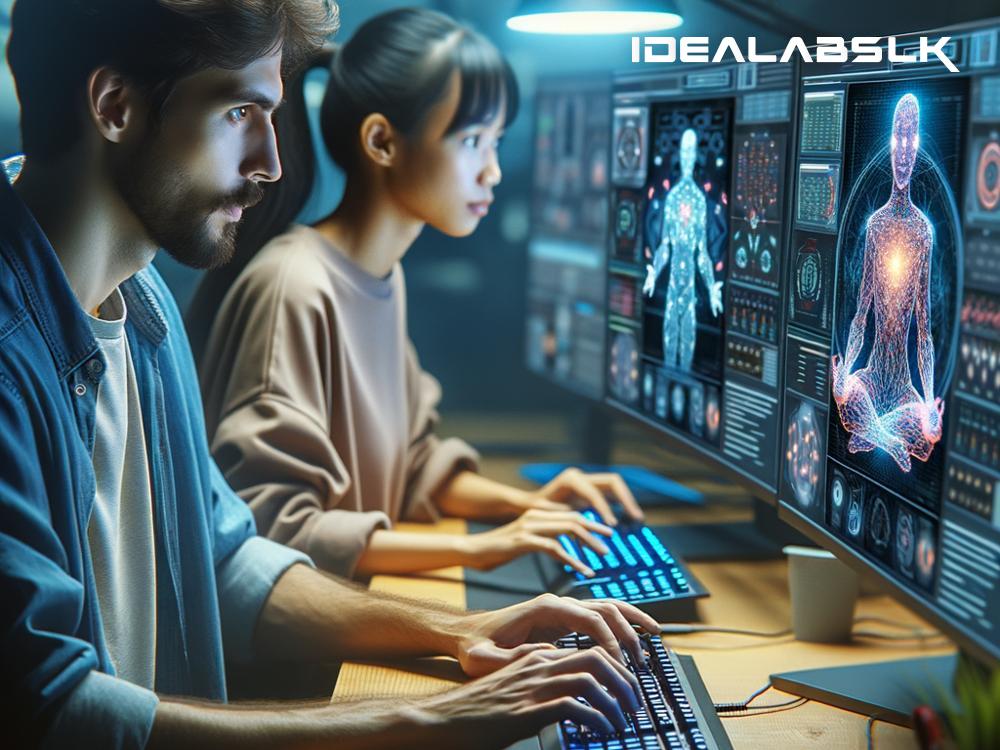How AI and Machine Learning Will Speed Up Game Development in 2025
In the realm of video games, the jump from simple pixelated screens to immersive 3D worlds has been nothing short of amazing. But as we dive deeper into the future, particularly the year 2025, a new duo is set to revolutionize the gaming industry further: Artificial Intelligence (AI) and Machine Learning (ML). Let's unpack how these technologies are poised to speed up game development, making the process smoother, faster, and more creative than ever before.
Smarter, Faster Design Processes
Imagine a world where game developers could create vast, intricate worlds in a fraction of the time it takes today. That's the promise of AI and ML in 2025. These technologies can automate many of the tedious tasks that slow down game development, such as coding base environments, designing complex ecosystems, and even testing game mechanics.
With AI's ability to learn and adapt, it can take a simple concept input by a human developer and expand it into a full-fledged design, complete with unique details, in record time. This means developers can focus on the creative aspects of game creation, trusting AI to handle the grunt work.
Personalized Content Creation
One of the most exciting prospects of AI and ML in game development is the generation of personalized content. By analyzing player data and preferences, these technologies can create customized gaming experiences on the fly. Imagine playing a game that adapts its storyline, challenges, and even music based on your playing style and past choices. This level of personalization will make games more engaging and replayable, as each playthrough could offer a new and tailored experience.
Streamlined Testing and Debugging
Before a game hits the market, it undergoes rigorous testing to identify and fix any bugs. This process can be long and laborious but is crucial for ensuring a smooth player experience. In 2025, AI and ML will streamline this process by automatically scanning code for issues and even predicting where bugs might occur based on past data. This instantaneous feedback will allow developers to make quick adjustments, significantly shortening the game development cycle.
Furthermore, AI-driven testing bots could simulate countless playthroughs in a fraction of the time it would take human testers, uncovering hard-to-find bugs and ensuring the game is balanced and enjoyable.
Enhanced NPC Behavior
Non-Player Characters (NPCs) play a vital role in video games, helping to create a living, breathing world for players to interact with. By 2025, AI and ML will bring these characters to life in unprecedented ways. Through advanced learning algorithms, NPCs will be able to respond to player actions more naturally and dynamically, leading to more immersive and unpredictable game scenarios. This AI-powered intelligence can make game worlds feel more authentic and reactive, further blurring the lines between game and reality.
Scalable Game Development
Small indie developers and large studios alike will benefit from the scalability that AI and ML offer. These technologies can level the playing field by providing tools that automate complex aspects of game development, such as AI character behavior scripts, realistic physics calculations, and dynamic environmental effects. This means that even teams with limited resources can create rich, detailed game worlds that were previously the domain of big-budget studios.
Conclusion
As we look ahead to 2025, the impact of AI and ML on game development is clear. These technologies are set to revolutionize the way games are made and played, offering unprecedented levels of speed, customization, and immersion. For developers, this means more freedom to innovate and create without being bogged down by the technical details. For players, it promises a future of gaming that is more personal, engaging, and realistic than ever before.
By embracing these advancements, the gaming industry is poised to enter a new era of creativity and exploration. The possibilities are as limitless as the virtual worlds these technologies will help us create. The future of game development is not just about making games faster; it's about making them better, in every sense of the word. And in 2025, with AI and ML by our side, we're set to leap into that future headfirst.

